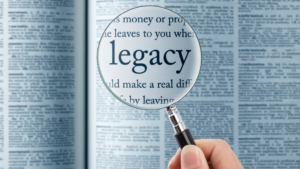 By Kyle Prevost, MillionDollar Journey
By Kyle Prevost, MillionDollar Journey
Special to Financial Independence Hub
By the end of the summer of 2021 I was no longer a homeowner.
In many countries that statement would be a simple matter of personal finance. Selling an asset, paying off a loan (mortgage) and moving on to another living space.
But not in Canada.
No, in Canada selling our house means that my wife and I are making a massive change to our identities. A core shift in our very essence.
Many would say we are taking a careless step backward on the path to living a fulfilled “real adult” life.
Several friends and family will likely believe that we are crazy for tossing away “the best investment one can ever make.”

The absolute obsession with homeownership in Canada continues to astound me. The emotional connection between Canadians and their real estate has been well documented, but that doesn’t make it any more logical! Even though my wife and I have owned a home for years, this was much less because we subscribed to the traditional “own at all costs” mentality, and more due to the fact that rural Manitoba housing vs rent decisions are quite different than most places in Canada.
We’ll certainly miss some of the small luxuries (goodbye big garage) of our old home, but here’s some of the reasons why we believe selling our house will be a weight off of our shoulders.
1.) Endless Fear of Hearing a Strange Noise
Is that the furnace taking its last breath?
Perhaps it’s the water treatment system deciding to spring a leak?
Is that rain I hear – is it possible our septic system is backing up?!
My dad loves fixing stuff. His day is not complete until he has improved the physical world around him.
I am not my dad.
My lack of handyman skills has now become a joke that I’m comfortable laughing at, but for years I was incredibly self-conscious about possessing nearly zero masculinity-affirming fix-it ability. You want someone to work hard doing menial chores such as cutting lawns, raking leaves, shovelling snow, or lifting heavy things from Point A to Point B – I got you covered.
Anything that requires technical skills or mechanical problem-solving ability… not so much.
Because my father’s handyman-dominant brain was not passed down to his oldest son, I lived in perpetual fear of things breaking when I owned a home. I never really got this “pride of ownership” thing. For me it was definitely more of a “fear of ownership”. I had so much of my net worth tied up in this one asset – that required constant maintenance – and I really had no idea what it was doing. “Learning by doing” constantly scared me as errors were quite costly.
Hiring any specialized help on something like an air conditioning unit always seemed to cost triple what was estimated, so that just exponentially added to my anxiety levels around maintenance.
Renting = not my problem!!!
2.) Renting is Simply a Better Financial Decision Than Buying – in 2021 Canada.
I know … that’s a big statement.
It’s probably worth an article all on its own.
It will probably lead to crazy comments (as all real estate articles in Canada do).
But it’s quantifiably true.
We’ll get into the “fringe” elements of why owning can be so expensive in a second, but for now let’s just look at the direct dollars and cents comparison.
Before we get too deep into this, I don’t want to argue with you unless you have viewed the following content by some of Canada’s smartest personal minds.
i) Preet Banerjee compares renting a house and renting a mortgage and then explains why he is a renter.
ii) John Robertson (my vote for most underrated personal finance philosopher – and it’s not even close) tells you why he is a renter and presents the best rent vs buy calculator that I’ve ever seen.
iii) Here’s Ben Felix’s 5% rule in action. I personally believe that Ben is shooting a bit high on real estate estimates (today’s giant houses are not comparable to historical returns data he quotes), and a bit low on property taxes + maintenance costs. He also isn’t factoring in closing costs (which are a pretty big deal when you move the number of times the average Canadian does), nor the difference between renters insurance and home insurance. I do like his methodology, but the 5% rule of thumb for non-recoverable costs is pretty badly slanted towards real estate due to the factors mentioned above. I could probably live with a 6% rule – but find a 7% rule to be a much more true measure (speaking as a soon-to-be former homeowner of ten years).
iv) I’ve talked to many real estate experts who claim “the 1%” rule of thumb is a great filter for a potential landlord looking to add a revenue-generating property to their real estate portfolio. That means that if you can’t get at least 1% of your purchase price in monthly rent, then it’s not really worth considering the property. The flip side of that is that if you’re renting for substantially less than 1% of the purchase price of a comparable home – then you’re getting a good deal. Bryce over at Millennial Revolution explains his rule of 150 which comes to similar conclusions.
Those are all great looks at accurately comparing financial costs vs benefits of purchasing a house to live in.
So, let’s use them to look at a few options across Canada at the moment.
Toronto Real Estate
The average price of a property sold in the GTA in May of 2021 was $1,108,453 (a massive 28% gain over a year earlier) while the average rent is closer to $2,100 (down 14%).
- Our 1% rule of thumb says that a $1,100,000 house better get you $11,000 per month in rent – or it’s not a good buy.
- Using John’s or Preet’s calculators we see that renting is WAY ahead given these parameters.
- My modified Ben Felix 7% rule tells us that if we can rent for $6,466 – then it’s a pretty good deal to rent. If we stick to his original 5% rule, we need to rent for less than $4,618 to be a good deal.
- Bryce’s preferred rule of 150 means that the $2,100 rental average, would dictate a mortgage payment of $1,400 as a good measuring stick for if they should buy. A $1,400 mortgage (HAHA – good one) would correlate to a purchase price of roughly $350,000 (depending on a few variables.
Conclusion: By any measure… this makes no sense.
Buying a House in Calgary
Maybe this is just a Toronto thing. Let’s go to a city that has seen its housing market really fall on tough times as a result of the oil collapse, PLUS rent has actually gone up over the last year.
The average rent in Calgary is roughly $1,200 and the average cost of a property is $510,000. Those stats might be skewed a bit by average home type in the rental world vs average home type in the purchase world. Let’s say average rent for comparable might be $1,500.
- Our 1% rule of thumb says that a $510,000 house better get you $5,100 per month in rent – or it’s not a good buy.
- Using John’s or Preet’s calculators we see that renting is substantially ahead given these parameters.
- My modified Ben Felix 7% rule tells us that if we can rent for under $3,000 – then it’s a pretty good deal to rent. If we stick to his original 5% rule, we need to rent for less than $2,125 to be a good deal.
- Bryce’s preferred rule of 150 means that the $1,500 rental average, would dictate a mortgage payment of $1,000 as a good measuring stick for if they should buy or not. A $1,000 mortgage would correlate to a purchase price of roughly $230,000.
Home Prices in Halifax
Ok, enough of these “big city places”. We all know that house prices are way cheaper on the East Coast, so let’s run the numbers for Canada’s semi-hidden gem of a city.
The average rent in Halifax is about $1,600 per month and the average cost of property is $465,000.
If we adjust upward to $1,800 in allowing for comparable properties (I checked, you can rent a solid single-family unit for 1,800 in Halifax – even better in Dartmouth, Nova Scotia) then we get the following analysis.
- Our 1% rule of thumb says that a $465,000 house better get you $4,650 per month in rent – or it’s not a good buy.
- Using John’s or Preet’s calculators we see that renting is substantially ahead given these parameters.
- My modified Ben Felix 7% rule tells us that if we can rent for under $2,700 – then it’s a pretty good deal to rent. If we stick to his original 5% rule, we need to rent for less than $1,937 to be a good deal.
- Bryce’s preferred rule of 150 means that the $1,800 rental average, would dictate a mortgage payment of $1,200 as a good measuring stick for if they should buy or not. A $1,200 mortgage would correlate to a purchase price of roughly $280,000.
…that’s why I’m not afraid to be a renter the rest of my life and why I’m not worried about “hopping off” the property ladder.
If you’re still not convinced, here are a few more stats for you.
- Canada’s current price-to-rent levels are 574% higher than they were in 1970.
- Since 1970, Canada’s price-to-rent level has risen at roughly 21x as quickly as the USA’s.
- Canada’s current price-to-rent levels are substantially higher now than the USA’s was before their 2008/09 housing crash.
3.) Opportunity Cost of Being Rooted Into Place
I grew up in a single house – owned by a homeowner. (My parents were unique in that my dad built his own house on a very cheap piece of rural land and never took out a mortgage. Feel free to try and copy that strategy in 2021.)
It was really nice. I get that there can be some very pleasant reasons to own the house/condo that you live in.
But let’s be honest about the big picture here – there are some large trade offs involved.
Buying a home makes you much less likely to move in order to accept a promotion or career opportunity. That’s impossible to quantify, but it’s a really significant consideration. One of the quickest ways to climb in any industry (or even make an advantageous jump to a new industry) is to be willing to move to where the opportunity is. The cost to your career of feeling as if you are anchored to the house you worked so hard to get into could be massive!
4.) Our Brains Work Differently When We Think About Renting a Place to Live vs “Buying a Forever Home” – Lifestyle Inflation is Almost Inevitable.
Funny things begin to happen as we approach the leap from renter to homeowner. Suddenly, cost-benefit calculations we were doing about third bedrooms or fancy kitchens fly out the window… only the best will do for our “forever home” after all.
Weird mantras like, “We’ll grow into it,” begin to creep into our heads and suddenly we’re looking at fancy countertops, upgrading bathrooms, etc. Continue Reading…







